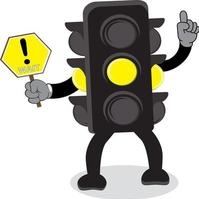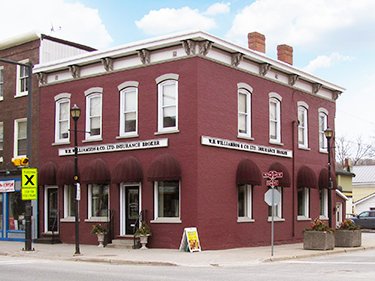Barbecue Season Is In Full Swing: Don’t Go Up In Flames
The joys of outdoor cooking also bring fire and associated risks. Here are some safety reminders for gas and propane barbecues to protect you and your property from harm or damage.
• Never operate a barbecue in an enclosed space, close to a structure, or near combustibles. Have a one metre radius around it free of obstructions.
• Keep your barbecue in tip top shape. Check for hose breakage, valve leaks, and other parts before securing the tank well and turning on the gas.
• When in use, never leave the grill unattended, and when finished turn the tank off before the burners so the remaining gas in the lines can burn off. This can help prevent a flash the next time the BBQ is in use.
• Make sure your fire extinguisher is easily accessible and in good working order.
Additional Tips
• Propane companies use an additive to create an unpleasant odour like rotten eggs to make a propane leak easier to detect, so you can shut off supply immediately, stop using the grill, and clear the area.
• Although the risk of carbon monoxide is low when using a BBQ outdoors, it is not entirely eliminated. Learn to recognize the signs of CO2 poisoning and take appropriate action.
• Store propane tanks in an upright position, in a spot where they are unlikely to be knocked or bumped to prevent any safety risk.
|
|
| What To Do When Water Damage Happens | |
|
In 2018, severe weather events cost the Canadian insurance industry $1.8 billion in insured losses – the 4thhighest in Canadian history, with 2016 seeing a record $3.6 billion in losses, and water damage making up a large part of the figure. More homes have finished basements, complete with big-ticket items and high-end furnishings, leading to ever higher replacement costs. Water damage, coupled with a shortage of contractor availability, means major lifestyle disruption and higher costs for consumers. If, despite your best efforts, you experience water damage in your home, follow these steps: · Don’t touch electrical wires, appliances or devices. · If the sanitary sewer backs up into your basement, don’t flush the toilet or turn on any taps, even if you have installed a backwater valve. This will only cause further flooding. · Keeping safety in mind, take all reasonable measures to prevent further loss or damage to your property. · Separate damaged property from undamaged property, and prepare an inventory of what has been lost or damaged. · Take photos of damaged property. · Keep receipts of any clean-up costs incurred (e.g., wet/dry vacuum rentals, cleaning supplies, etc.) |

In 2018, severe weather events cost the Canadian insurance industry $1.8 billion in insured losses – the 4thhighest in Canadian history, with 2016 seeing a record $3.6 billion in losses, and water damage making up a large part of the figure. More homes have finished basements, complete with big-ticket items and high-end furnishings, leading to ever higher replacement costs. Water damage, coupled with a shortage of contractor availability, means major lifestyle disruption and higher costs for consumers. If, despite your best efforts, you experience water damage in your home, follow these steps:
· Don’t touch electrical wires, appliances or devices.
· If the sanitary sewer backs up into your basement, don’t flush the toilet or turn on any taps, even if you have installed a backwater valve. This will only cause further flooding.
· Keeping safety in mind, take all reasonable measures to prevent further loss or damage to your property.
· Separate damaged property from undamaged property, and prepare an inventory of what has been lost or damaged.
· Take photos of damaged property.
· Keep receipts of any clean-up costs incurred (e.g., wet/dry vacuum rentals, cleaning supplies, etc.)
 Who’s At Fault in Caution Light Crashes?
Canada’s dreaded amber light is the source of numerous intersection crashes, resulting in untold insurance claims. Because of this, be especially vigilant when turning left against yellow caution lights at intersections. Although the outcome of a given case will be determined based upon the facts that are unique to that case, a driver making a left-hand turn will generally not be able to rely on an assumption that the other driver will stop for the yellow light.
Fault for the resulting collision will likely be found in such cases on the part of the left-turning driver.
Drivers have a legal duty to stop for a yellow light, but only if they can do so safely. Otherwise, they are allowed to proceed through the intersection with caution.
The Highway Traffic Act states that a left-turning driver must ensure the turn can be safely made, so it is the responsibility of that driver to make sure it is safe to proceed through the intersection.
Some drivers attempting to make a left turn on a yellow light may assume that an approaching vehicle will stop; however, this assumption does not lessen or negate liability for left-hand turning drivers in the event of a collision.
Who’s At Fault in Caution Light Crashes?
Canada’s dreaded amber light is the source of numerous intersection crashes, resulting in untold insurance claims. Because of this, be especially vigilant when turning left against yellow caution lights at intersections. Although the outcome of a given case will be determined based upon the facts that are unique to that case, a driver making a left-hand turn will generally not be able to rely on an assumption that the other driver will stop for the yellow light.
Fault for the resulting collision will likely be found in such cases on the part of the left-turning driver.
Drivers have a legal duty to stop for a yellow light, but only if they can do so safely. Otherwise, they are allowed to proceed through the intersection with caution.
The Highway Traffic Act states that a left-turning driver must ensure the turn can be safely made, so it is the responsibility of that driver to make sure it is safe to proceed through the intersection.
Some drivers attempting to make a left turn on a yellow light may assume that an approaching vehicle will stop; however, this assumption does not lessen or negate liability for left-hand turning drivers in the event of a collision.




 W.H. Williamson & Co. Limited
W.H. Williamson & Co. Limited




